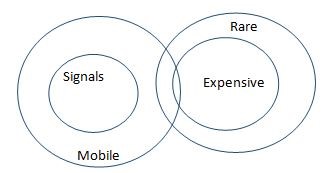Question
Statements: All signals are mobile. Some
mobile are expensive. All expensive are rare. Conclusion: I. Some expensive are not signal. II. Some rare are mobile. III. Some signal are rare. In each question below are given some statements followed by some conclusions numbered I, II, etc are given. You have to take the given statements to be true even if they seem to be at variance with commonly known facts and then decide which of the given conclusions logically follows from the given statements, disregarding commonly known facts.Solution
All signals are mobile(A) + Some mobile are expensive(I) ⇒ No conclusion. Hence conclusion I and III does not follow. Some mobile are expensive(I) + All expensive are rare(A) ⇒ Some mobile are rare(I). Hence conclusion II follows. 
What is the term used to describe the process of transferring a portion of risk to another insurer?
How many part-time members is appointed by the Government of India in the Composition of IRDAI?
Third-Party Administrators (TPAs) are primarily involved in:
Which of the following institution was setup with the objective of promoting exports from the country by providing credit risk insurance and related ser...
The Public Sector Insurance companies in India include:
A policy that covers loss or damage to a householder's property is:
What is a quota share treaty?
What is a coverage that guarantees bondholders timely payment of interest and principal even if the issuer of the bonds defaults?
What is the purpose of a risk survey in underwriting?
Which of the following showcased a tableau for the first time in Republic Day Parade 2023?
Relevant for Exams:



